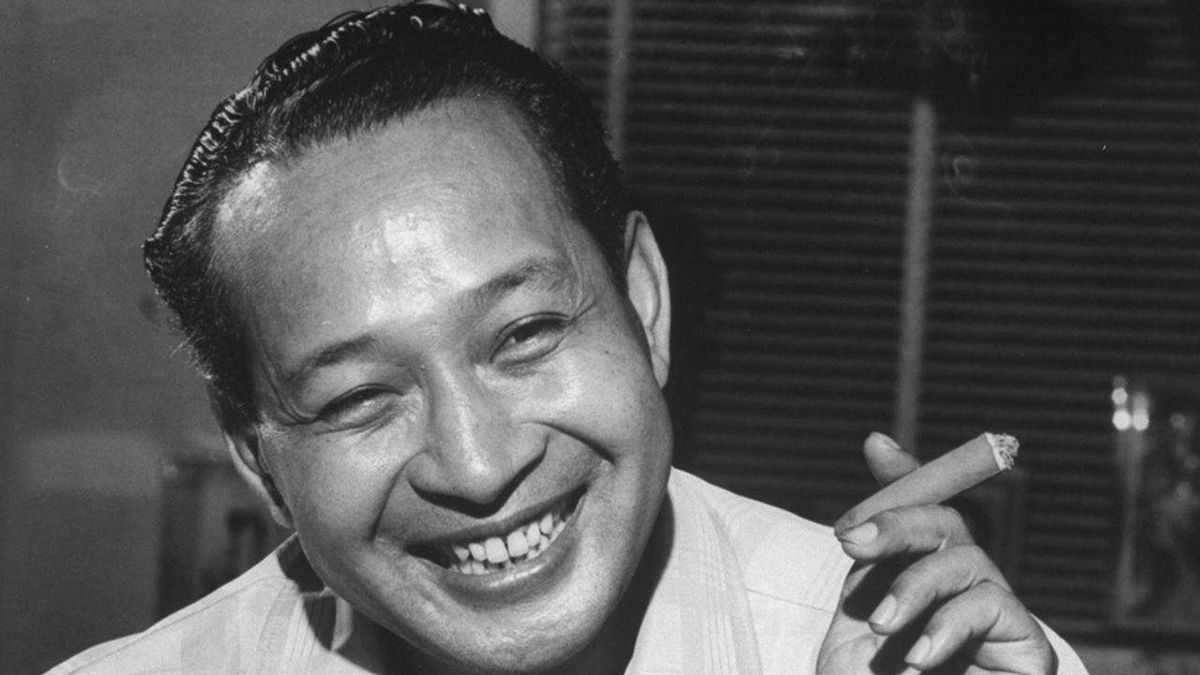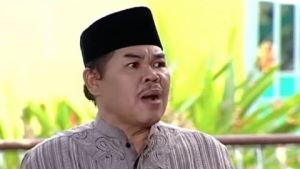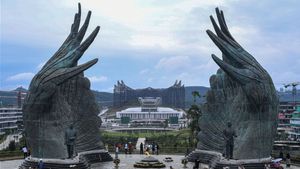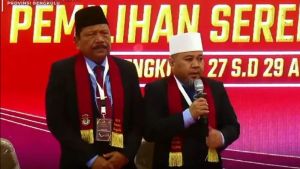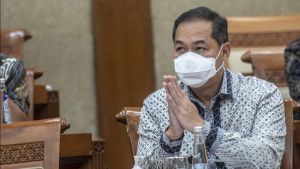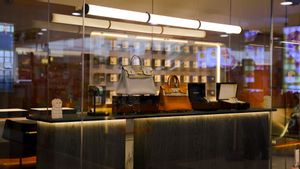JAKARTA - Suharto and the New Order (Orba) are good at embracing the military. The Smiling General was able to make ABRI (now: TNI) a powerful tool of power. Suharto's power grew long. However, this action did not fully allow civilians to run the government.
Suharto actually gave the military more space to live in the middle way: between civilian and military roles. Later people got to know him in the term ABRI Dwifunction. Military members began to enter civilianly filled spaces, from ministers to sub-district heads.
The closeness of President Soekarno and the Indonesian Communist Party (PKI) often makes many people disturbed. Many of the military leaders did not approve of Bung Besar's closeness to the PKI. The party bearing the arithmetic hammer symbol is considered to have bad behavior in Indonesia's political space.
The presence of the September 30th Movement in 1965 became a peak of suspicion. Generals of the Indonesian Army were kidnapped and killed by rebels suspected of affiliated with the PKI. Suharto also appeared like heroes. He immediately filled the void in the Indonesian Army.
He moved to kill the fire of the rebellion quickly and measurably. Support for Suharto emerged from everywhere. He then took the initiative to clean up sympathizers and high-ranking officials of the PKI.
Recently, Suharto received the mandate of the March 11 Order (Supersemar) from Soekarno and took good advantage of it. He acted measuredly to dissolve the PKI which became the people's wish. He then began to look for communist Bung Karno loyalists from civilians and government.
All of them were detained. This condition made many TNI generals angry with the PKI sympathize with Suharto. Soekarno's role began to be reduced. He then appeared as the new president of Indonesia from 1968. The position did not necessarily make him forget land.
He began to use the military as an important part of his power along with the political vehicle of the Golkar (Golkar). The military was assigned to be a businessman against the government. All kinds of actions that interfere with the course of power, the military will work together.
VOIR éGALEMENT:
He (Suharto) slowly won the support of other military leaders, replacing military officials and civil servants who sympathized with the PKI with officials who were loyal to him, and for the next two and a half years slowly and carefully eliminated Sukarno while pretending to act on behalf of Soekarno.
"In March 1966 Sukarno was pressured to sign a letter of power to Suharto; in March 1967 Suharto became interim president, and in March 1968 he replaced Soekarno as president," Jared Diamond said in the bookUpheaval(2022).
Andil Suharto and the New Order used the military as an important part of no power whatsoever. Suharto even considered that the active military competence of ABRI could bring Indonesia to grow up. Suharto likes to agree with the idea that a military figure, AH Nasution, had raised.
AH Nasution used to suggest a 'middle way' strategy for the active military. This means that ABRI members can play a role on both sides as well as held civilian and military positions. Suharto was attracted to the idea of ABRI's Dwifunction.
Suharto hopes that the presence of active military members in civilian positions can perpetuate his power. This narrative made Suharto immediately carry out ABRI's Dwifunction or what is often known by the public as a dual function.
Active military members can serve all kinds of public positions from high levels to sub-district levels: ministers to sub-district heads. The results can be seen in the 1970s. Tens of thousands of military members began to enter and move positions that should have been filled by civilians.
Nothing interferes with military rule. They continue to work. The advanced or non-institution they hold is another matter. The presence of the military in civilian office brings new problems. The civil role in the nation's development is starting to decrease.
On the other hand, ABRI's Dwifunction is also not very smooth. This policy makes many civil office posts filled by members of the military who do not have special competence. Indeed, ABRI's Dwifunction is recognized to be able to smooth Suharto's power for 32 years.
Problems arise. The dyfunction also brought destruction from Suharto and the New Order. Once Indonesia was hit by a recession in 1998, the country had no effective strategy of getting out of the brink of bankruptcy. Suharto stepped down in May 1998.
It was recorded that in the mid-1970s, there were 20,000 military personnel, mostly from the Army unit, who entered politics: ranging from ministers, ambassadors, governors, to sub-district heads. It has even entered the realm of the economy, such as the director of state-owned enterprises and bank officials. This number continued to increase in the following decades until Suharto's fall in May 1998," said Dhianita Kusuma Pertiwi in the book Regarding the New Order (2021).
The English, Chinese, Japanese, Arabic, and French versions are automatically generated by the AI. So there may still be inaccuracies in translating, please always see Indonesian as our main language. (system supported by DigitalSiber.id)
